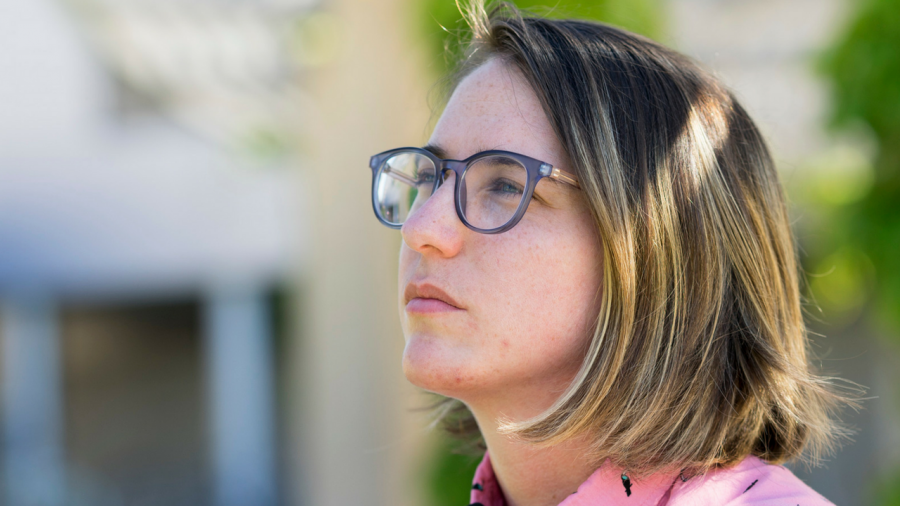In Sacramento State’s efforts to combat sexual violence, Hailey Vincent has served as the victim advocate on campus since February.
The victim advocate position has been filled at Sac State since 2000 — making it the first CSU campus to have one on staff. The position allows students to discuss experiences of sexual violence and steps they can take going forward.
“We serve to be a support system for students — providing information and resources for students who have been victims of sexual assault and violence, and walking them through processes that they need,” Vincent said “I place the information in their hands and empower them to make their own decisions on what would be best for them individually.”
No two days are ever identical in Vincent’s office. With the variety of services linked to her job title, the spectrum of places she allocates her time to can range from walking students to the Title IX office to report assault, walking them through the steps of filing a police report, or having one-on-one conversations about what a victim is going through.
Whatever her day has in store, the goal remains the same — to serve as a bridge between victims and what they need for themselves.
Vincent is a graduate of Chico State University, where she majored in journalism and minored in sexual diversity. After writing an article for Chico State’s student publication The Orion regarding a professor and his struggles with immigration, Vincent said she found her passion for social justice work.
Volunteering for WEAVE, Inc. (a non-profit formerly known as Women Escaping A Violent Environment) on its 24-hour hotline and at its safehouse led her toward her new path of helping victims of sexual assault at Sac State.
In Sac State’s Title IX Office’s latest report regarding sexual assault statistics on campus for the most recent fiscal year, there were 22 reports of sexual misconduct, dating and domestic violence, and stalking reports investigated.
While Vincent said that Sac State has been historically dedicated to terminating sexual violence — such as the implementation of the victim advocate position, along with the introduction of the CSU’s first sexual misconduct policy — she believes more can be done to help prevent these crimes on campus.
“Sac State has been moving in the right direction, but there can always be improvements,” Vincent said. “The information on this topic is changing constantly and the research is getting better. The people I work with are looking at this information constantly, which helps us find new ways to address the problem and make the campus environment safer.”
William “Skip” Bishop — Sacramento State’s Title IX Coordinator — echoed Vincent’s opinions on Sac State’s steps toward assisting sexual assault survivors while focusing on exposing more students each year to available resources, including the campus victim advocate.
“I feel that our campus resource information is readily available and easily accessible,” Bishop said. “However, that does not mean the job is done. We will continue to publicize these resources through social media, word of mouth and however else we can.”
Vincent expressed that fighting sexual assault on college campuses is not the job of a single person on campus, but of the entire student body and the cultural influences they face well before they are students.
She expressed that communication, awareness, and intervention are ways each person can help prevent more instances of sexual violence each year.
“Having conversations about sexual violence is a big step. It helps to break down the stigma that we aren’t supposed to talk about it,” Vincent said. Stand up to your friend if he makes a rape joke. Speak up when your friends are speaking about the way certain women dress in a derogatory way. Stop people if you see them taking a woman who is too intoxicated at a party into a bedroom. We can’t start any change without having dialogue, staying educated and being decent human beings.”































































































































